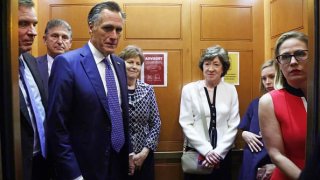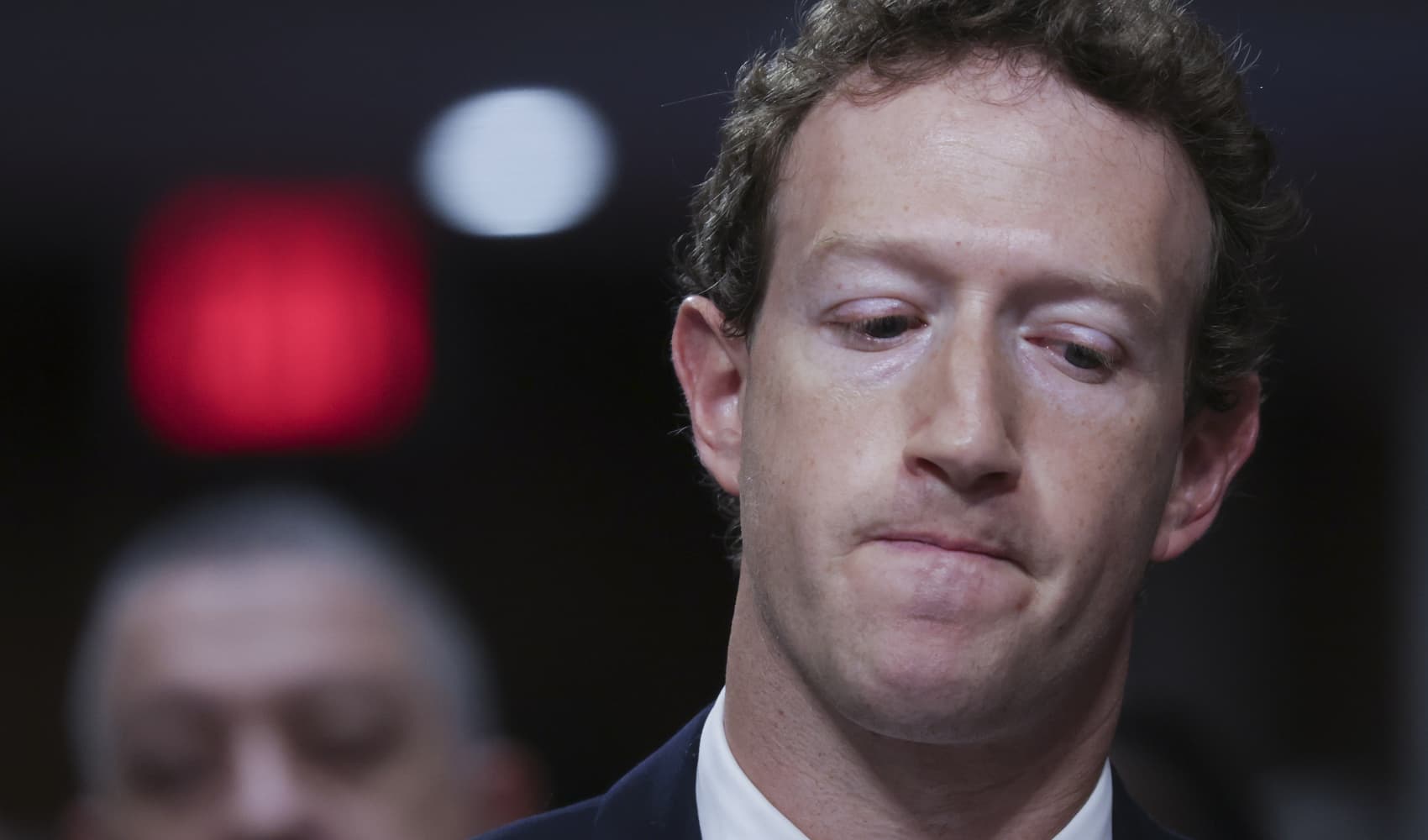
- A group of 10 Democratic and Republican senators put forward an infrastructure plan that would cost roughly $1 trillion.
- The White House is assessing the framework and has questions both about what is in the proposal and how lawmakers want to pay for it.
- While the senators try to win support for their bipartisan plan, Democrats are taking initial steps to pass an infrastructure bill on their own.
An infrastructure plan crafted by a group of Senate Democrats and Republicans would cost roughly $1 trillion, a price tag that leaves the senators with work to do to win over members of both parties.
The proposal, which aims to upgrade physical infrastructure such as transportation and water systems, would cost $974 billion over five years or $1.2 trillion over eight years, a source familiar with the plan told CNBC. It would include $579 billion in new spending above the baseline already set by Congress. Biden asked for about $600 billion in new money, according to Sen. Bill Cassidy, R-La.
Senators have not announced how they plan to pay for the investments. The proposal "would be fully paid for and not include tax increases," the 10 lawmakers who reached the deal said in a statement Thursday.
Get Connecticut local news, weather forecasts and entertainment stories to your inbox. Sign up for NBC Connecticut newsletters.
The group framed their proposal as a compromise to upgrade U.S. infrastructure with bipartisan support in Congress. The senators still need to win backing from President Joe Biden and congressional leaders for their plan to gain traction.
In a statement responding to the plan Thursday night, White House spokesman Andrew Bates said "questions need to be addressed, particularly around the details of both policy and pay fors, among other matters."
Money Report
"Senior White House staff and the Jobs Cabinet will work with the Senate group in the days ahead to get answers to those questions, as we also consult with other Members in both the House and the Senate on the path forward," he said.
The White House let senators know it would not agree to pay for a bill by either indexing the gas tax to inflation or implementing an electric vehicle mileage tax, NBC News reported Thursday. The measures would break Biden's promise not to raise taxes on anyone making less than $400,000 per year.
It is also unclear if the spending will be broad enough to win over Senate Majority Leader Chuck Schumer, D-N.Y., House Speaker Nancy Pelosi, D-Calif., or progressives who have grown impatient with Biden's efforts to reach a bipartisan deal. While Senate Minority Leader Mitch McConnell, R-Ky., has said he wants to pass a bipartisan infrastructure bill, he has also signaled he aims to block major pieces of Biden's economic agenda.
Schumer's and Pelosi's offices did not immediately respond to requests to comment. A spokesman for McConnell did not immediately comment.
Democrats are working on more than one front to pass an infrastructure bill and implement the first piece of Biden's economic recovery agenda. While the White House considers the bipartisan proposal, Democrats have started to set the groundwork to pass pieces of the president's $2.3 trillion American Jobs Plan by other means.
One tool is the five-year, $547 billion surface transportation funding bill advanced by the House Transportation and Infrastructure Committee this week. Democrats could use the measure, which the House could vote on as soon as the end of the month, to approve parts of Biden's agenda.
Biden has also urged Schumer and Pelosi to move forward with a budget resolution to set up the reconciliation process. By doing so, Democrats could pass an infrastructure bill without Republican support.
The path appears blocked for now. Sen. Joe Manchin, the West Virginia Democrat whose vote the party would need to approve legislation in a Senate split 50-50 by party, has stressed he wants to pass a bipartisan bill.
Manchin is one of the 10 negotiators in the Senate group.
It is unclear whether Democratic leaders would accept the bipartisan plan's lack of spending on so-called human infrastructure, such as Biden's plan to expand care for elderly and disabled Americans. The party could potentially weave those proposals into a separate bill based around Biden's American Families Plan. The proposal focuses on child care, education and health care.
Democrats have argued the country needs to improve care programs alongside physical infrastructure because both would help Americans get back to work.
Biden has also called to hike the corporate tax rate to at least 25% to pay for the first piece of his recovery plan. However, Republicans said they would not alter their 2017 tax law, which cut the corporate rate to 21% from 35%.






